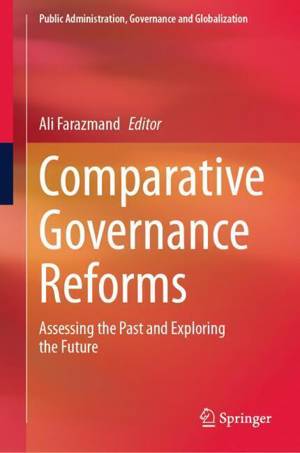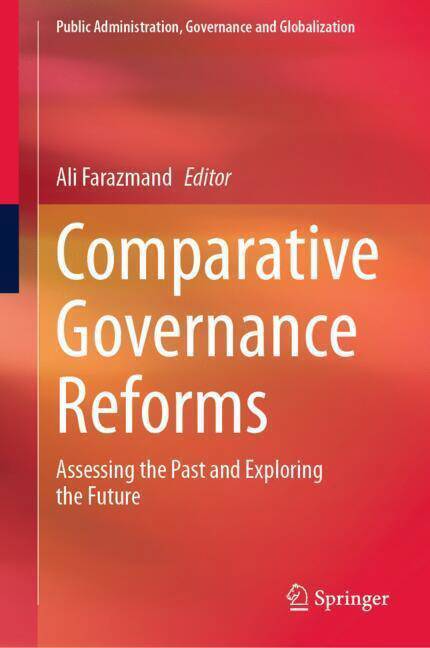
- Retrait gratuit dans votre magasin Club
- 7.000.000 titres dans notre catalogue
- Payer en toute sécurité
- Toujours un magasin près de chez vous
- Retrait gratuit dans votre magasin Club
- 7.000.000 titres dans notre catalogue
- Payer en toute sécurité
- Toujours un magasin près de chez vous
Comparative Governance Reforms
Assessing the Past and Exploring the Future
Description
This book presents a comprehensive view of governance reforms, changes, and developments in the structure, process, and cultures of governments and public administration systems around the world since the 1980s. The focus of this book is on the last forty years of experimentation with governance and public administration reforms, with an eye to the future. A wide range of chapters covers various countries-both comparatively and individually-and the nature and dynamics of their governance reforms and changes in administrative systems.
The volume utilizes several theoretical approaches that include: 1) institutional theory as applied to explain the 'context' of changes and reforms; 2) political economy that explains who gets/gains and who loses; 3) dialectical theory that explains and analyzes the past and the present and predicts the future of governance reforms across the world; and 4) path-dependency theory that explains how past experiences tend to influence the future reform efforts. Governance reforms are also assessed with the alternative theory of Sound Governance (Farazmand 2004) which considers powerful external political, economic, and military forces of globalization and their effects on developing nations.
The book is organized into five parts, excluding the Introduction. Part I provides a robust theoretical backbone for the volume. Parts II-IV present case studies (as single or groups of countries) on governance reforms in select countries of Europe, Asia and Central/Latin America. Part V offers a long concluding chapter on the global governance reforms and puts the previous reform measures with recommendations for future governance and administrative reforms. Contributing significantly to knowledge on governance reform, administrative reform, government and public administration, this volume will be of use to scholars and students of public administration, governance, and policy, as well as policy makers and government administrators worldwide.
Spécifications
Parties prenantes
- Editeur:
Contenu
- Nombre de pages :
- 304
- Langue:
- Anglais
- Collection :
- Tome:
- n° 52
Caractéristiques
- EAN:
- 9783031703058
- Date de parution :
- 03-02-25
- Format:
- Livre relié
- Format numérique:
- Genaaid
- Dimensions :
- 156 mm x 234 mm
- Poids :
- 621 g






